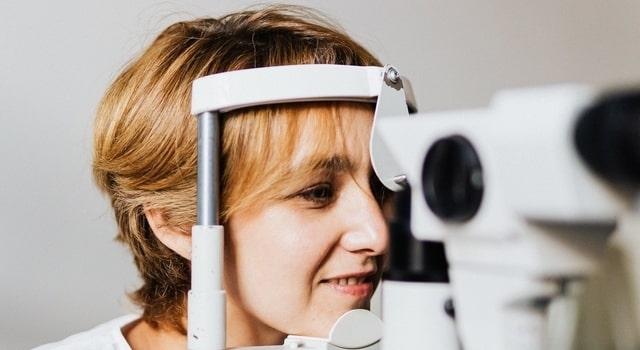
Women's eye health is a critical aspect of overall well-being that deserves special attention, particularly during Save Your Vision Month. Hormonal fluctuations, pregnancy, and menopause can significantly impact eye health, leading to conditions such as dry eye syndrome, changes in vision, and increased risk of developing eye diseases like glaucoma and cataracts. These unique challenges underscore the importance of regular eye exams and adopting preventive measures to maintain optimal vision.
The Connection Between Hormones and Eye Health
Hormonal changes throughout a woman's life, including those during menstrual cycles, pregnancy, and menopause, can affect the eyes in various ways. For example, fluctuations in hormone levels can lead to dry eye syndrome, a condition more prevalent among women, particularly during pregnancy and menopause.
Symptoms like irritation, redness, and blurred vision can be more pronounced during allergy season, making it essential to manage both eye health and allergies effectively.
Navigating Eye Health During Allergy Season
Allergy season can make eye health issues worse, with symptoms such as itching, redness, and swelling especially affecting women. Fortunately, adopting an eye care routine tailored to reduce exposure to allergens and alleviate symptoms can be an effective way to minimize discomfort. Tips may include wearing sunglasses outdoors, using air purifiers indoors, and avoiding rubbing your eyes as much as possible.
Allergy season can be particularly difficult for contact lens wearers, as additional considerations and safeguards are required to maintain eye health and comfort. One solution is to switch to daily disposable contact lenses during this time. Daily disposables are an effective way to minimize the accumulation of allergens and irritants on the lens surface.
Each day starts with a fresh new pair of contacts, reducing the potential for allergic reactions. This is especially beneficial during allergy season when pollen counts are high, and the risk of contaminating lenses with allergens increases.
Moreover, daily disposables eliminate the need for cleaning and storing lenses, reducing the chances of allergen build-up and decreasing the likelihood of introducing irritants that can make allergy symptoms worse.
If you wear contact lenses and have allergies, speak to our eye doctor at Eye Designs Optometry about switching to daily disposable lenses. This can offer a more comfortable and practical solution for dealing with allergy season while maintaining clear vision and optimal eye health.
The Importance of Regular Eye Exams for Women
Regular eye exams are incredibly important for detecting and addressing eye health issues early, especially for women with unique risk factors. These exams can identify conditions like glaucoma, cataracts, and macular degeneration, which may have subtle symptoms but can lead to significant vision loss if left untreated.
Save Your Vision Month is a great time to request a comprehensive eye exam and take proactive steps toward maintaining healthy vision.
Strategies to Promote Women's Eye Health
The following are eye care tips from our team at Eye Designs Optometry for maintaining women’s eye health:
- Request regular eye exams to detect and treat eye conditions early. Regular check-ups can help identify issues like glaucoma, macular degeneration, and cataracts before they become more serious.
- Manage hormonal changes through lifestyle adjustments and medical advice. This helps to mitigate hormonal impact on eye health. Hormonal fluctuations can affect your vision and eye comfort, so proactively addressing these changes can help preserve your vision.
- Adopt a healthy lifestyle, including a balanced vitamin and mineral-rich diet to support your overall eye health. Nutrients like omega-3 fatty acids, lutein, and vitamins C and E can help maintain eye health and reduce the risk of chronic eye diseases.
- Wear protective eyewear to shield your eyes from UV rays and allergens. Sunglasses with 100% UV protection can prevent long-term sun damage while minimizing exposure to irritating allergens.
- Stay hydrated to maintain eye moisture levels. This reduces the risk of dry eye syndrome, which is more prevalent in women, especially during menopause.
- Ensure adequate sleep and rest for your eyes to reduce strain and fatigue. Establishing a routine that includes breaks from screen time can help maintain eye health and function.
- Exercise regularly to improve circulation and eye health. Physical activity can lower the risk of conditions like high blood pressure and diabetes, affecting vision.
Save Your Vision Month offers a timely reminder for women to focus on their eye health, particularly as they navigate the unique challenges of hormonal changes and risk factors. By taking proactive steps and seeking regular care from eye health professionals, women can protect their vision and enjoy a high quality of life.
Don't wait for symptoms to appear; take action today to safeguard your vision for tomorrow. Request your eye exam and take a significant step towards preserving your long-term vision and eye health today.
